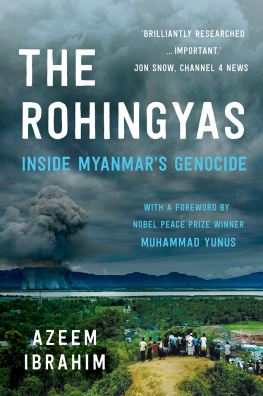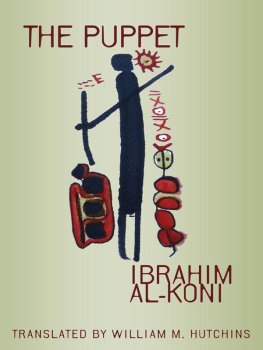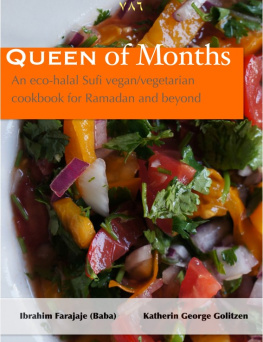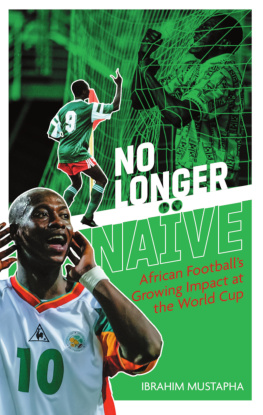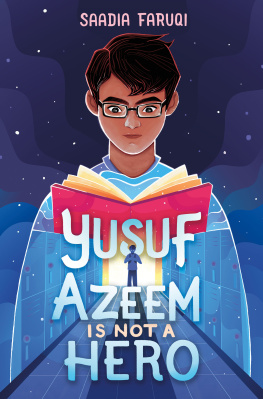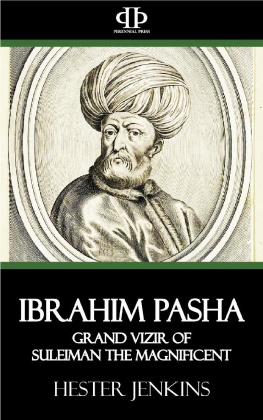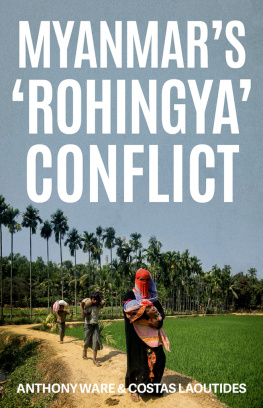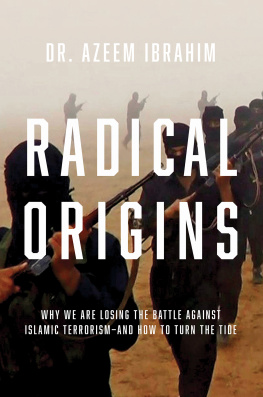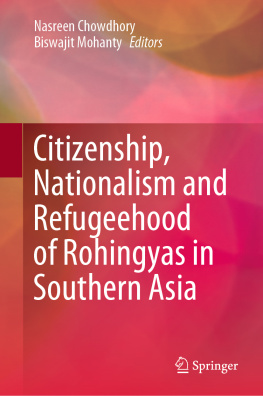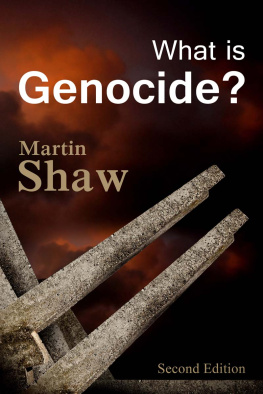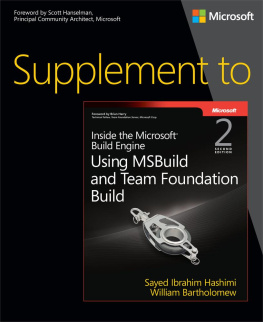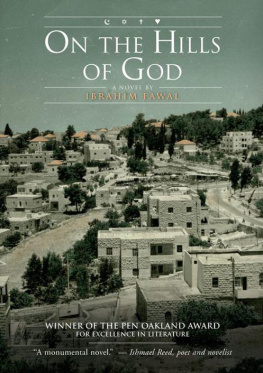THE ROHINGYAS
AZEEM IBRAHIM
The Rohingyas
Inside Myanmars Genocide
Revised and updated edition

HURST & COMPANY, LONDON
First published in the United Kingdom in 2016 by
C. Hurst & Co. (Publishers) Ltd.,
41 Great Russell Street, London, WC1B 3PL
Azeem Ibrahim, 2018
This revised and updated edition published 2018
All rights reserved.
Printed in the United Kingdom
The right of Azeem Ibrahim to be identified as the author of this publication is asserted by him in accordance with the Copyright, Designs and Patents Act, 1988.
A Cataloguing-in-Publication data record for this book is available from the British Library.
ISBN: 9781849049832
This book is printed using paper from registered sustainable and managed sources.
www.hurstpublishers.com
Dedicated to the Rohingya people, whose suffering seems to have no end.
CONTENTS
No book is written single-handedly. I have spoken with, and taken the time of, many dozens of people in the course of researching this book. It is always difficult to do justice to everyone, but I shall endeavour.
Above all I would like to give my sincere thanks to my friend and colleague Dr Roger Cook from the Scotland Institute and activist Jamila Hanan without whom this work would simply not exist. I am particularly grateful to my good friend and the Editor of the Dhaka Tribune, Zafar Sobhan who facilitated my first trip to the Rohingya camps and also arranged for Nobel Laureate, Professor Mohamamd Yunus, to pen the foreword to this book. That same first trip to the camps would not have been possible were it not for my guides and translators, Jaami A Farooq and Sayeed Alamgir from Cox Bazaar.
I am also grateful to several leading academics and activists who supported and contributed to this project. In particular, I owe a debt of gratitude to Ambassador John Shattuck whose experience from the Bosnia war was very relevant to this research. Also to Steven Kiersons from the Sentinal Project on Genocide Prevention; Shabnum Mayet, a leading activist and attorney from South Africa, Prof William Schabas, a world authority in International Law; Andrew Day, a leading voice and activist for the Rohingya, Alexia Solomou from the International Court of Justice; Emanuel Stokes, freelance journalist; Mohammad Ibrahim, Nay San Lwin, Erin Gallagher from Physicians for Human Rights and Dean Martha Minow from Harvard Law School.
Of my friends and colleagues, I would like to single out Keyleigh Long and Fiona McGreggor from the Myanmar Times. Both of whom I was very surprised to meet in Yangon and who helped me navigate the political wilderness of Myammar and make my trip as fruitful as possible.
Thanks also to fellow author and academic Andrea Pitzer who bailed me out of a sticky situation whilst I was in Sittwe. A special thanks also goes to Sahira Sadiq for her valiant efforts in retrieving critical historical documents from the Indian National Archives in New Delhi.
Finally, I should like to thank my agent, Martin Toseland, my publisher Michael Dwyer and my wife Hena Ibrahim who supported me emotionally and practically during my long trips abroad.
Most of all I would like to give my deepest gratitude to all the Rohingya people I met and interviewed throughout my trips who I am unable to name for their own safety. Particularly my fearless guides who managed to smuggle me into and out of the IDP camps unscathed. They know who they are and I dedicate this book to them.
| ALD | Arakan League for Democracy |
| ANP | Arakan National Party |
| ASEAN | Association of South east Asian Nations |
| BCP | Burmese Communist Party |
| BIA | Burmese Independence Army |
| BSPP | Burma Socialist Programme Party |
| CRPP | Committee Representing the Peoples Parliament |
| DHRP | Democracy and Human Rights Party |
| ICC | International Criminal Court |
| NLD | National League for Democracy |
| NUP | National Unity Party |
| OIC | Organisation of Islamic Cooperation |
| RNDP | Rakhine Nationalities Development Party |
| UNHCR | United Nations High Commission for Refugees |
| USDP | Union Solidarity and Development Party |
| Kwan Kyi | Minister in the democratic government from 194862. Mother of Aung San Suu Kyi |
| Aung San Suu Kyi Shwe Mann | Leader of the NLD USDP party chairman until 2015 when he was removed by Thein Sein for being too close to the NLD. Ally of Than Shwe |
| Aye Maung U Nu | Leader of the RNDP/ANP Prime minister from independence in 1948 until the military coup in 1962 (with hiatuses) |
| Tin Oo | Vice-chairman of the NLD since 1988; had been the militarys commander in chief up to 1976 when he was deposed after a failed coup |
| Aung San | Important military leader in the independence movement, assassinated in 1947. Father of Aung San Suu Kyi |
| Thein Sein | Myanmars president since 2011, backed by the military and the USDP |
| Than Shwe | Leader of the government from 200411. Widely believed to still be influential and to control one of the major factions in the USDP |
| Ashin U Wirathu | Major figure in the 969 Movement, sometimes called Buddhisms Bin Laden |
| Ne Win | General who organised the 1962 military coup; was forced to stand down after the 1988 popular revolt |
| Kyaw Zay | Important military leader in the independence movement; after independence led the military wing of the Burmese Communist Party |
1. Map of Myanmar
Muhammad Yunus
One of the fundamental challenges for a democracy is to work out how to ensure the voice of the majority does not trample the essential rights of minorities. Even as we applaud and rejoice in the new freedoms enjoyed by the people of Myanmar, the countrys government must face this challenge as it evolves from autocratic rule into a democratic state. The tragedy of the Rohingya people, which continues to unfold in Rakhine State in the countrys western corner, on the border with Bangladesh, will be its testing ground.
The rejection of citizenship rights for Rohingyas, denial of freedom of movement, eviction campaigns, violence against Rohingya women, forced labour, expulsion from their lands and property, violence and torture have made Myanmars ethnic Rohingyas the most persecuted minority in the world. I humbly add my voice to the simple demand of the Rohingya people: that their rights as our fellow human beings be respected, that they be granted the right to live peacefully and without fear in the land of their parents, and without persecution on grounds of their ethnicity or their form of worship. A government must in the end be judged by how it protects the most vulnerable people in its society, and its generosity towards the weakest and most powerless. Let not the good work of this government be overshadowed by the continuing persecution of the Rohingya people.

